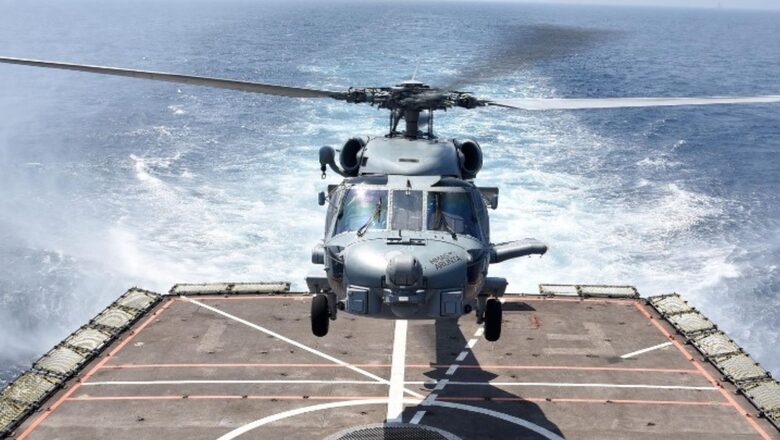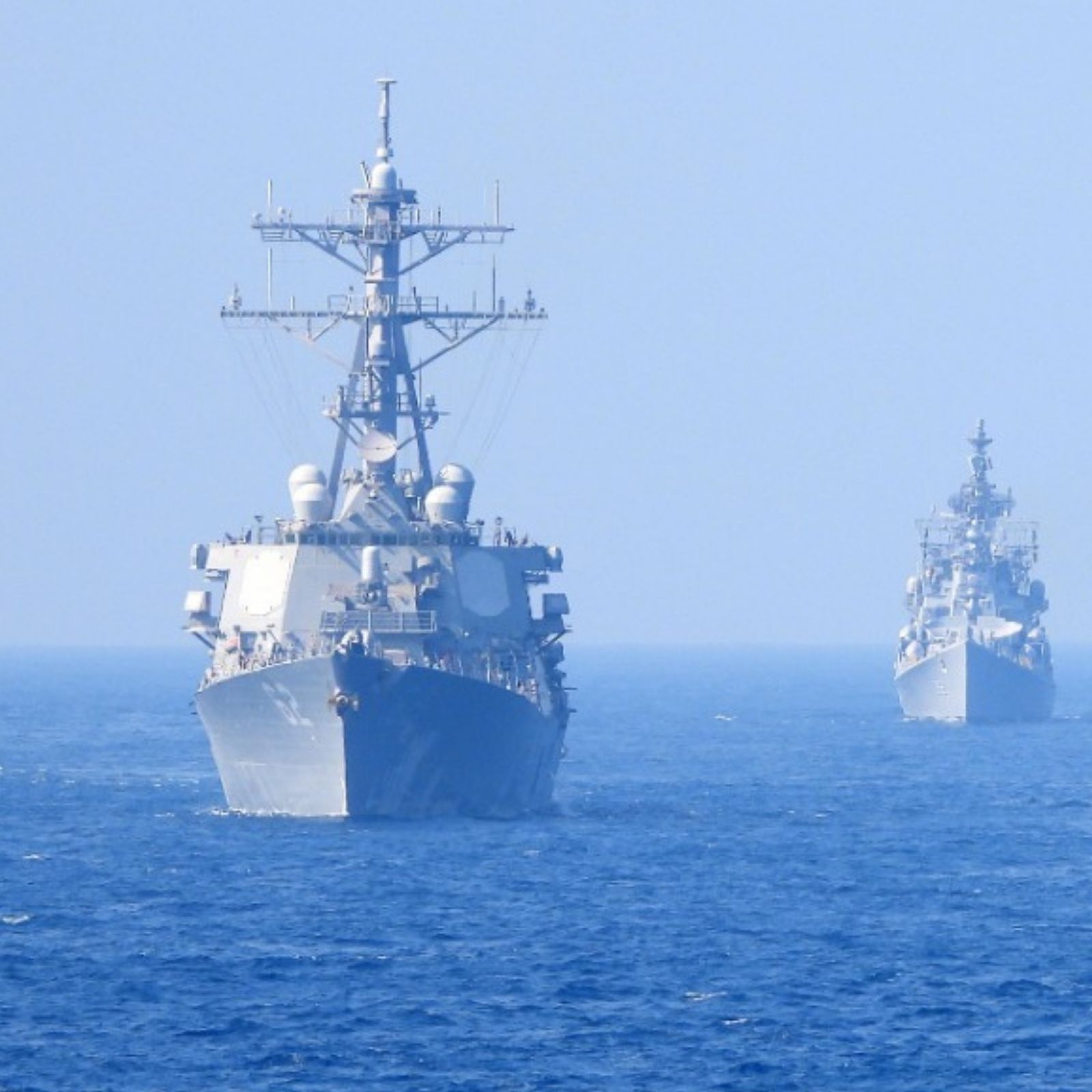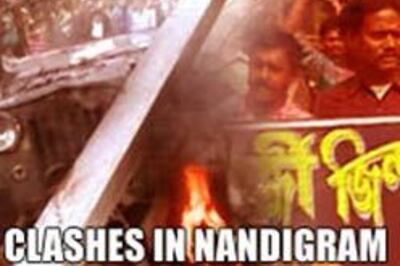
views
When the Indian Navy started Milan at the Andaman and Nicobar Command in 1995, the multilateral naval exercise saw just four participants from Indonesia, Singapore, Sri Lanka and Thailand.
But 27 years later, the biennial exercise has not just grown in size with 40 countries, including India, participating in it, but also in sheer complexity, with a focus on exercises at sea in surface, sub-surface and air domains, also including weapon firings, and participation of extra regional navies such as the US Navy.
Milan 2022 began on February 26 and took place in two phases — the harbour phase from February 25 to 28 and the Sea Phase from March 1 to 4. The theme of the exercise – ‘Camaraderie – Cohesion – Collaboration’ – is aimed at promoting collective responsibilities of maritime security for ensuring safe and secure seas, as per the Navy.
As many as 46 countries were invited for the exercise, of which 39 participated. Of the participating navies, 13 sent their warships for the exercise, while others were represented by delegations.
As per the Navy, the aim of the exercise is to “hone operational skills, imbibe best practices and procedures, and enable doctrinal learning in the maritime domain, through professional interaction between friendly navies”.
As the Indo-Pacific gets exponentially complex with a number of foreign navies operating and also faces rising law and order issues, News18 traces the journey of Milan and its significance to the Indian Navy at this time.
WHY MILAN IS SIGNIFICANT
Former Navy Chief Admiral Arun Prakash (Retd) told News18 that aside from cultural inter-mingling and exchanges between participating personnel, Milan activities focus on what are termed as “non-traditional maritime threats” such as piracy, maritime terrorism, climate change, illegal fishing, illegal immigration, and smuggling of arms and drugs.
“Participants exchange notes and compare ‘best practices’ in these spheres of maritime security. The close interaction, between naval personnel, during Milan, has beneficial outcomes, which can be utilised for strengthening regional diplomatic agendas,” he said.
He, however, added that the exercise, in its current form, is not meant to have any military to military connotations.
Admiral Prakash explained that enhancing regional maritime cooperation and coordination to enhance maritime security or “good order at sea” is the main purpose of Milan.
He said that aside from the “non-traditional maritime threats”, equal importance is given to issues such as pandemic relief, humanitarian assistance & disaster relief (HADR), search & rescue (SAR) at sea, submarine rescue, refugee/non-combatant evacuation operations (NEO), among others.

“In all of these ops, navies have a critical role to play. Therefore, close cooperation and understanding (inter-operability wherever possible) between respective navies is of utmost importance, and Milan plays a vital role in their enhancement,” he said.
The former Navy chief also said that the participation by the US Navy in Milan is a welcome sign.
“It is the biggest and most resource-rich navy in this part of the world, and has a valuable contribution to make to regional maritime security of the Indo-Pacific, especially in the domain of non-traditional threats,” he said.
“In the 2004 Great Asian Tsunami, apart from the Indian Navy, it was the USN which played a most significant role in rendering HADR,” he added.
PTI quoted Navy chief Admiral R Hari Kumar as stating that the Indian Navy seeks to be the preferred security partner for all smaller countries in the region. He also said Milan was a reflection of trust and capability of the Indian Navy.
A senior Navy officer, who chose to remain anonymous, explained that today the Indian Ocean is host to a number of extra regional navies, in addition to the regional navies operating, for reasons such as anti-piracy, FONOPS, IUU, trade protection, among others.
“It then is but natural that all like-minded navies would need to have a common understanding and enjoy inter-operability for maintaining a rule-based order in the region. Milan, conducted by India, which has the largest navy is the region, is the answer,” the officer told News18.
A second senior Navy officer said the exercise aims to project India as a responsible maritime power to the world at large.
“It helps generate a professional interaction between friendly navies and helps project India as a bridge between the IOR nations’ navies and the major navies of the rest of the world,” the officer said.
He added that the capability to attract so many navies to an exercise like Milan is indicative of the respect that not only the Indian Navy commands, but also the “izzat of India as a country”.
“Neighbouring countries no longer view us as a bully, but as a friendly neighbour, which is sincerely interested in the enhancement of the capability of their navies,” the officer said.
“Milan is a good mix between power projection and diplomatic outreach to our friendly navies as well as some navies which are fence-sitters.”
HOW DID MILAN START?
As per the Navy, Milan began in 1995, in line with India’s ‘Look East Policy’, which expanded to the ‘Act East policy’ of the central government and Security And Growth for All in the Region (SAGAR) initiative, with participation from island nations in the Western IOR as also IOR littorals.
From what was a regional event between 1995 and 2000 with the participation of a handful of south Asian and South East Asian countries with predominantly harbour-based exercises, Milan expanded to a major maritime exercise with 18 participating countries in 2014, including IOR littorals and exercises at sea.
Aside from complex exercises at sea, Milan also includes operational conferences and seminars to provide a platform to participating navies and delegations to express their thoughts on maritime security.
The last edition of Milan held in 2018 at Port Blair was attended by 17 countries. The 2020 edition of the exercise was cancelled due to the Covid-19 pandemic. The 2001 and 2016 editions of the exercise were not conducted because of the International Fleet Review and the 2005 edition of Milan was rescheduled to 2006 because of the Tsunami in 2004.
Read all the Latest News India and Breaking News here



















Comments
0 comment